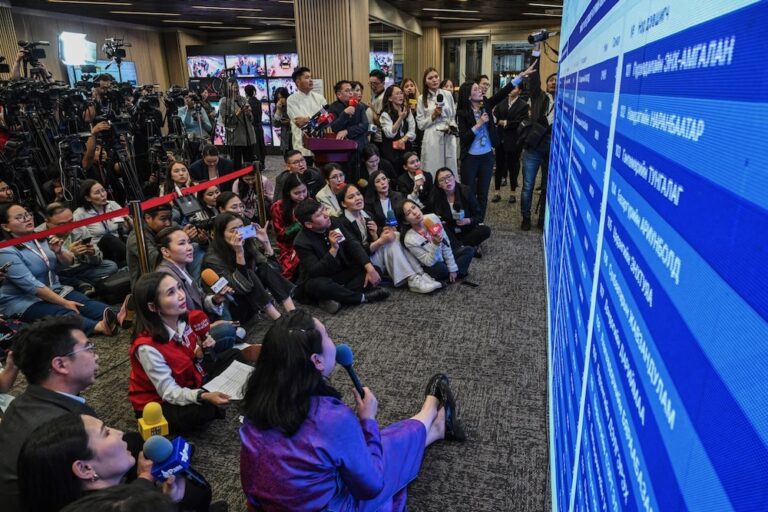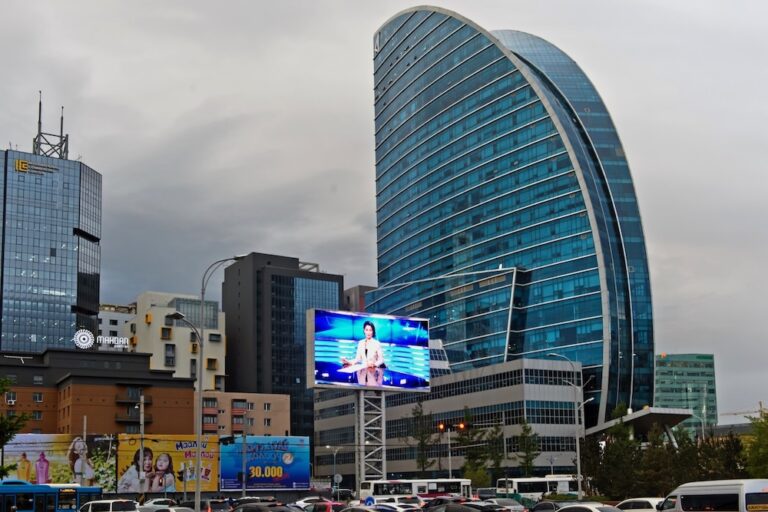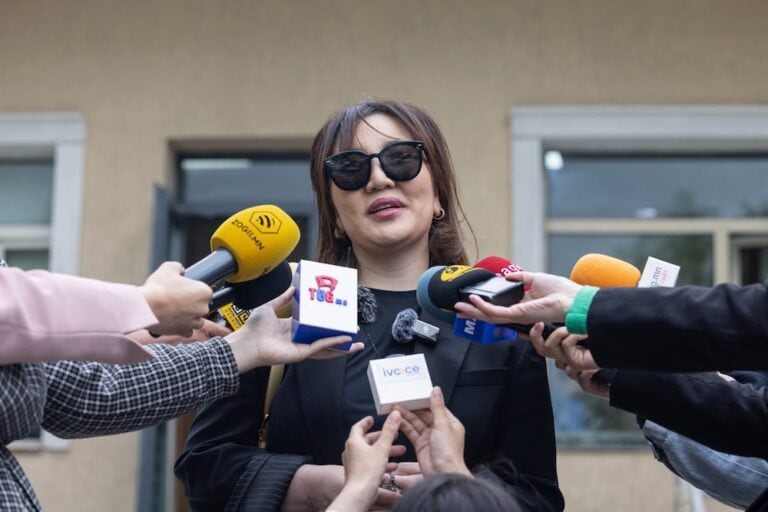Globe International provides an analysis of how national legislation either guarantees or restricts free expression.
(Globe/IFEX) – In its “Media Freedom Report 2009”, Globe International provides an analysis of how national legislation either guarantees or restricts freedom of expression.
Excerpt from the report’s preface:
Despite the existence of laws and regulations that protect free media, violations of freedom of the press and against professional journalists continue to occur. Violations of journalists’ rights lead to restrictions on media freedom and prevent journalists from disseminating the truth, thus causing serious damage to democracy and the public interest. Although prohibited by law, both overt and covert censorship still exist in Mongolia. Restraints placed on media outlets and on the work of journalists violate the nature and principles of democracy.
It is common practice in Mongolia for politicians and public servants to use provisions of the Criminal Code and Civil Law to censor the media. The courts, when deciding libel cases, do not take into consideration the legitimate right of the public to receive objective information; instead they generally support the authorities, which in turn creates doubt about the independence of the judiciary. Those in power use the authority of their position to suppress the truth and fair criticism and to cover up wrongdoing.
Mongolian journalists are still often unable to obtain information from government agencies, officials or employees, and are denied access to government documentation. This is in violation of the democratic principles of governmental openness and transparency, and of the public’s right to receive objective information. If journalists’ rights are denied even in the pursuit of the most basic information, it will be extremely difficult for them to investigate and expose hidden facts and provide the public with accurate and in-depth information.
The lack of transparency regarding Mongolian media ownership violates the principle of pluralism and serves to foster hidden agendas; the provision of partisan information to the public creates societal distortions and confusion. As a result, it is very difficult for the Mongolian public to discern who is telling the truth, and much confidence is thereby lost in the media and in journalists.
Journalists are subject to a range of pressures and face interrogation in an attempt to force them to disclose the identity of their sources, which in turn places their sources of information at risk. As a result, the media cannot properly engage in their role as government watchdog. Society cannot function effectively if the value of investigative journalism is undermined.
Any attack on a journalist, up to and including threats to life and property, because of their pursuit of the truth, should be considered a serious criminal offence. Unfortunately, the Mongolian police and courts are unable to properly carry out their duty to determine the truth or to impose proper punishment.


